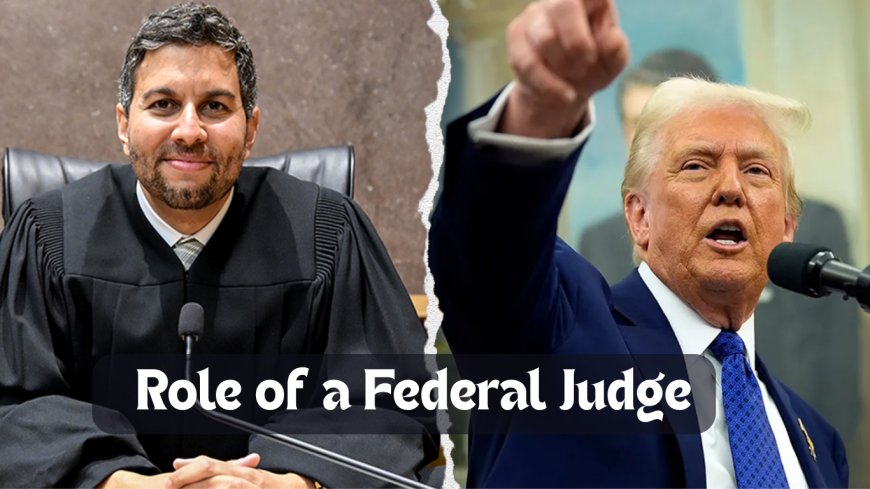Understanding the Role of a Federal Judge

Federal judges play a crucial role in the United States judicial system, ensuring that laws are interpreted and applied fairly and consistently across the country. Their decisions can shape national policies, influence civil rights, and uphold constitutional principles. This blog post explores who federal judges are, how they are appointed, what their duties involve, and why their role is vital to American democracy.
What is a Federal Judge?
A federal judge is a judicial officer appointed to serve in the federal court system. This system includes the U.S. District Courts, the U.S. Courts of Appeals, and the U.S. Supreme Court. Unlike state judges, who may be elected or appointed through different processes depending on the state, federal judges are nominated by the President and confirmed by the Senate.
Characteristics of Federal Judges:
-
Appointed for life (with good behavior)
-
Serve in one of three main levels of federal courts
-
Interpret and enforce federal laws and the Constitution
-
Independent from political influence once appointed
Appointment and Tenure
The process of becoming a federal judge is rigorous and politically significant. It involves several steps:
Steps in the Appointment Process:
-
Nomination by the President – The President selects a candidate based on recommendations, qualifications, and political alignment.
-
Senate Judiciary Committee Review – The nominee undergoes a detailed review, including background checks and hearings.
-
Confirmation by the Senate – A simple majority vote in the Senate confirms the judge.
-
Lifetime Appointment – Once confirmed, federal judges typically serve for life unless they resign, retire, or are removed through impeachment.
This process ensures that only candidates with high ethical standards, legal expertise, and impartiality become federal judges.
Responsibilities of a Federal Judge
Federal judges have a wide range of duties that go far beyond presiding over court trials. Their primary function is to interpret and apply the law to specific cases, but they also manage legal procedures, write legal opinions, and sometimes influence national policy through precedent-setting decisions.
Daily Functions of a Federal Judge:
| Function | Description |
|---|---|
| Case Management | Overseeing the progress of cases in their court |
| Legal Interpretation | Applying federal statutes and constitutional principles |
| Opinion Writing | Drafting detailed written decisions that explain the rationale for rulings |
| Sentencing | Determining appropriate penalties for convicted individuals |
| Ensuring Fair Trials | Upholding due process and the rights of all parties |
These responsibilities require not only legal knowledge but also strong ethical judgment and the ability to remain impartial.
Types of Federal Judges
There are several types of federal judges, each with a specific role within the federal judiciary:
Main Types of Federal Judges:
-
District Judges – Handle trial-level cases including civil and criminal matters.
-
Circuit (Appellate) Judges – Review appeals from district courts.
-
Supreme Court Justices – Rule on cases of constitutional and national significance.
-
Magistrate Judges – Assist district judges with pretrial proceedings and other duties.
Each of these positions contributes to the efficient functioning of the federal judiciary and ensures access to justice at every level.
Why Federal Judges Matter
Federal judges shape the interpretation of laws that affect millions of Americans. From landmark civil rights decisions to critical rulings on federal regulations, the judiciary influences everything from education and healthcare to business practices and personal freedoms.
Impacts of Federal Judges:
-
Protecting Constitutional Rights – Ensuring that individual liberties are upheld
-
Checking Legislative and Executive Power – Preventing abuses of authority
-
Creating Legal Precedent – Establishing guidelines that future courts follow
-
Promoting Stability – Offering consistent interpretations of the law
Because of their lifetime appointments, federal judges can make long-lasting impacts on American society and governance.
Conclusion
The role of a federal judge is one of the most important in the U.S. legal and political system. Their work ensures that justice is administered fairly and that the Constitution is upheld regardless of political pressures. By understanding the significance of federal judges, we appreciate the depth and resilience of the American judicial system.





























